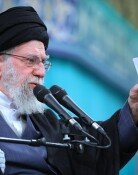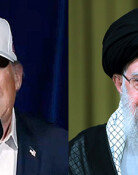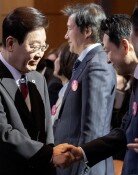Delayed Nomination May Lead to Voters Poor Choice
Delayed Nomination May Lead to Voters Poor Choice
Posted March. 10, 2008 03:00,
With the 18th general elections a month to go, concerns are mounting in regard to political brokers and regional sentiment swaying the voters, in the midst of insufficient inquiry into candidate profiles and their policies due to parties delayed nomination process.
The ruling Grand National Party and the liberal United Democratic Party continued their screening process even on Sunday, but they are still a month behind their schedules.
The GNP has just nominated more than half of the candidates, given the total number of 299 assemblymen including those selected under the proportional representative system. The major opposition UDP has not selected a single candidate yet. Other opposition parties are also behind their schedules.
In 2004, the GNP and the then Uri Party announced most of their candidates 40-50 days before the April general elections and, back in 2000, most candidates of the major parties were confirmed in mid-February before the April elections.
The December presidential election and the launch of the new administration have delayed political parties nomination process, but some political pundits think that the parties postponed their schedules on purpose to prevent those who are not included on the list from leaving their parties to create a new one or join other parties, or even create an independent alliance.
Voters, without information on who would run for their district even a month before the elections, are the victims of the delayed timetable, now that they do not have enough time to know more about the candidates and their promises before casting a vote.
Even if the parties district candidates are decided, they are not likely to come up with specific promises in time for the elections. In that case, they would be tempted to depend on political brokers or private organizations for their campaign, reviving past manipulated elections and resorting to regional sentiment.
I have never seen such a delay of the nomination process in the past, said Im Seong-ho, a professor of political studies of Kyung Hee University. As voters do not have enough time to consider whom to select, they are likely to cast a vote according to regional sentiment or political parties, unreasonably, he said.
jkmas@donga.com







